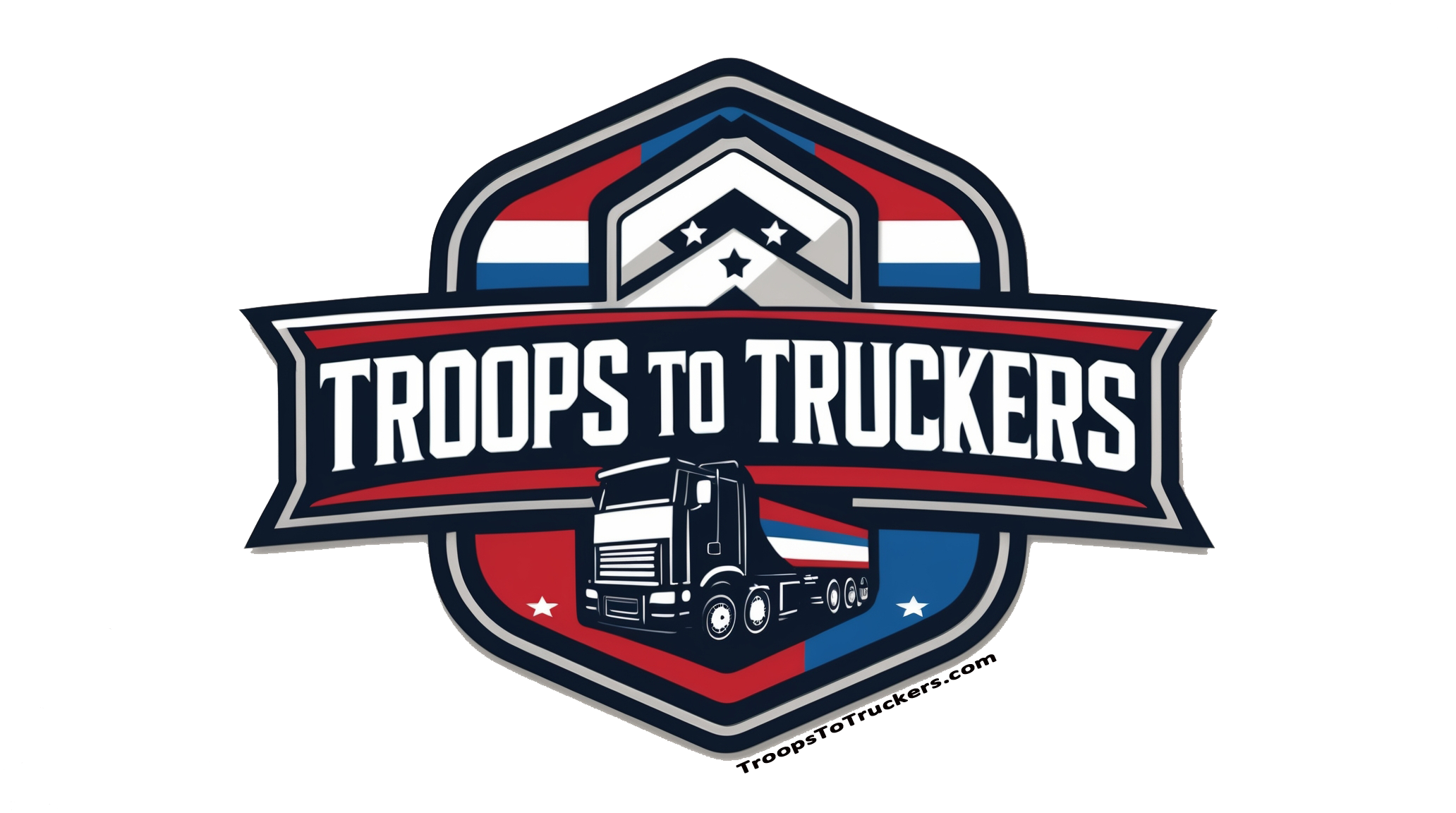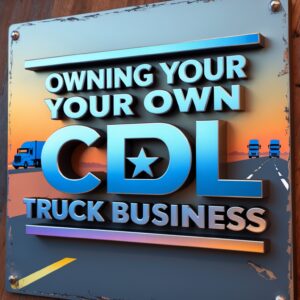For those who enter the trucking industry, the journey doesn’t have to end with driving alone. While being on the road is a fulfilling career for many, there are numerous pathways within the industry for those who seek new challenges and higher responsibilities. The trucking industry offers advancement opportunities in areas like dispatch, safety management, training, and logistics.
Whether you’re a seasoned driver looking to move off the road or a new driver with aspirations of management, understanding the pathways for growth and the steps to reach those goals can be a vital part of your career strategy. In this chapter, we’ll explore some of these options and outline practical steps for moving up the ladder within a transportation company.
Opportunities for Career Advancement in Trucking
Dispatch and Operations Management
Role Overview: Dispatchers play a critical role in keeping the wheels of the trucking industry turning. They coordinate loads, schedule pickups and deliveries, communicate with drivers, and ensure that customer needs are met in a timely and efficient manner. Operations managers oversee broader dispatch functions, handling multiple dispatch teams and ensuring the company’s logistical operations run smoothly.
Skills Needed: Effective communication, problem-solving skills, and an understanding of geography and route planning are essential. Knowledge of transportation regulations and strong organizational skills are also necessary.
Path to Entry: Many dispatchers start as drivers, leveraging their firsthand knowledge of the road. Training in logistics software and dispatch systems can make the transition smoother, and most companies offer training for employees who wish to transition to dispatch roles.
Safety Management
Role Overview: Safety managers are responsible for ensuring that all drivers adhere to safety protocols, understand compliance regulations, and operate in a manner that minimizes risk. They oversee driver safety programs, investigate accidents, and work with drivers to address any safety issues.
Skills Needed: A strong knowledge of federal and state transportation regulations, attention to detail, and communication skills are essential. A background in safety practices and certifications in safety management can also be beneficial.
Path to Entry: Drivers with clean safety records and an interest in safety training and compliance can be ideal candidates. Some companies offer safety management training, and obtaining certifications in transportation safety or occupational health and safety can improve chances for advancement.
Driver Trainer or Instructor
Role Overview: Driver trainers or instructors are experienced drivers who are tasked with training new drivers. They may conduct classroom sessions, in-cab training, or a combination of both. Driver trainers ensure that new recruits are well-prepared to drive safely and confidently.
Skills Needed: Patience, excellent communication skills, and a comprehensive understanding of vehicle operations and safety protocols. A passion for teaching and mentorship is also crucial.
Path to Entry: Many companies require driver trainers to have several years of driving experience with a clean record. Additional certifications in adult education or instructional techniques can provide a competitive edge.
Logistics and Supply Chain Management
Role Overview: Logistics managers coordinate the entire process of moving goods from suppliers to customers. This involves planning routes, negotiating with suppliers, managing warehousing, and working with dispatch and drivers to ensure efficient transportation.
Skills Needed: Knowledge of logistics software, analytical skills, negotiation skills, and the ability to manage multiple tasks are essential for success. Strong organizational and time-management skills are also vital.
Path to Entry: A background in driving or dispatch can be helpful, but additional education in logistics, supply chain management, or business administration can open doors to this area. Many companies also offer internal training programs to help employees transition into logistics roles.
Steps for Drivers Aspiring to Transition from Road to Management
For drivers who aspire to transition from the road to management roles, a strategic approach is crucial. Here are some actionable steps to help drivers take charge of their career advancement in the trucking industry:
Set Clear Career Goals
The first step to advancement is to set clear career goals. Think about what interests you most within the trucking industry. Are you interested in helping other drivers by becoming a trainer? Or perhaps managing schedules and logistics? Having a clear goal will guide your actions and help you make informed career choices.
Gain Relevant Skills and Knowledge
Transitioning to a management role often requires additional skills beyond driving. Many management roles require an understanding of industry software, federal regulations, communication skills, and business principles. Identify which skills are required for your desired role, and seek training or education to acquire them. Many companies offer in-house training programs, and there are also community colleges and online programs available that cover topics like logistics, management, and safety.
Build a Strong Professional Network
Networking is an invaluable tool for career growth. Make connections with other drivers, dispatchers, safety personnel, and managers within your company and the wider industry. Attend industry events, participate in online forums, and engage with professional organizations to expand your network. Building relationships with those in management roles can provide valuable insights and mentorship opportunities.
Demonstrate Leadership on the Road
One of the best ways to make a case for your advancement is to demonstrate leadership in your current role. Volunteer for additional responsibilities, offer to mentor new drivers, and consistently demonstrate a strong work ethic and professionalism. Being a positive influence on your peers and showing initiative can make you stand out as a candidate for advancement.
Communicate Your Ambitions with Management
Let your supervisors and management know about your aspirations. Expressing your interest in advancing within the company shows initiative and makes management aware of your goals. Many companies prefer to promote from within, so letting them know you’re interested can put you on their radar for future opportunities.
Pursue Relevant Certifications or Education
Formal education and certifications can give you a competitive edge, especially if you’re aiming for specialized management roles. For example, a Certificate in Logistics Management, a Safety Management certification, or a degree in business administration can strengthen your qualifications. Many companies offer tuition reimbursement programs, making it easier to pursue additional education while working.
Be Patient and Persistent
Advancement may take time, but persistence is key. Even if opportunities don’t come immediately, keep building your skills and proving your dedication. Take on extra responsibilities, seek feedback, and continue to show initiative. Demonstrating patience and perseverance will eventually open doors to new opportunities.
Advancing Beyond Management: Moving Towards Executive Roles
While many drivers may be content with middle-management positions, some may aspire to executive roles in the industry. For those aiming to move beyond management, a broader understanding of business operations, strategic planning, and leadership is essential. Executive roles require not only an understanding of the day-to-day operations but also the ability to make decisions that impact the entire company.
Seek Mentorship from Senior Leaders
Having a mentor in an executive role can provide guidance on what it takes to move up to higher levels within the company. Mentorship can help you understand the challenges and skills needed at the executive level.
Develop Financial and Business Acumen
Understanding financial statements, budgeting, and strategic planning is essential for executive roles. Pursue training in these areas, whether through formal education or on-the-job learning. The ability to analyze business performance and make strategic decisions is critical for executive success.
Build a Track Record of Results
Executive roles are typically results-driven. Whether you’re working in logistics, safety, or dispatch, focus on producing measurable outcomes. Demonstrating that you can improve processes, increase safety compliance, or reduce costs can make you a strong candidate for executive roles.
Advancing in the trucking industry requires commitment, skill development, and a clear career vision. By focusing on your goals, gaining relevant skills, and demonstrating leadership on and off the road, you can transition from driver to management and beyond. The trucking industry offers many paths to career advancement, and with determination and preparation, the road to success can lead far beyond the driver’s seat.





Comments are closed